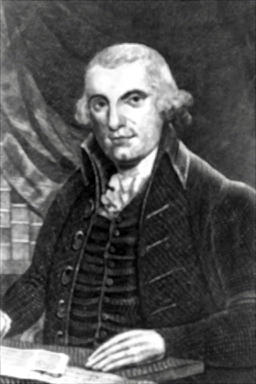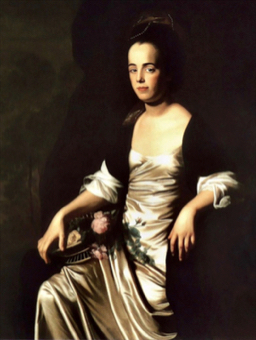A blog post by historian John Fea alerted me to a new history of Christian universalism by Prof. Michael McClymond, The Devil’s Redemption: A New History and Interpretation of Christian Universalism, and pointed me to an essay by McClymond that summarizes some of the book’s arguments. I turned to this essay with high hopes, because I would love to see a scholarly history of both organized universalism, and universalist theology.
And indeed, in the essay, McClymond makes what I think is an important argument: “Twenty-first-century Christian universalism may be interpreted as a form of [a] religion of humanity, minimizing humanity’s ineradicable spiritual divisions and annexing the biblical God to a secular affirmation of total human solidarity…. Universalism admits that the first-century Jesus was crucified, but it insists that the twenty-first-century Jesus will be crowned by the crowd. Universalism is the Gospel narrative frozen at the moment of the triumphal entry, when everyone stands in solidarity applauding Jesus.” In other words, Universalism is linked to rationalism, and more specifically to a rationalist interpretation of Biblical texts that selectively ignores any texts that disprove the idea of universal salvation.
Also of great interest to me was the way McClymond traces recent belief in universal salvation through twentieth century theologians such as Karl Barth, Hans Urs von Balthasar, and Jurgen Moltmann, up into twenty first century authors David Hart and and Richard Rohr. McClymond doesn’t mention my favorite twenty first century Quaker Universalists, Philip Gulley and James Mulholland — but why should he? — they are marginal figures at best, especially compared to Richard Rohr who, according the McClymond, hobnobs with Oprah and Bono.
So far, so good.
But even though McClymond has an important argument to make, his essay reads more like an apologetic for traditional “limitarian” theology, rather than careful history. Indeed, I’d say his history comes across as slapdash. For example, his essay includes several inaccuracies just in the first two sentences:
“Not until the nineteenth century did any Christian body make universal salvation its official teaching. The first to do so, the Universalist Church, later merged with another to form the Unitarian Universalist Association.”
Organized Universalism dates to the late eighteenth century: the General Conference of Universalists was organized in 1793 (according to David Bumbaugh, former professor of history at Meadville Lombard Theological School). And New England Universalists organized themselves as early at 1785, so there is an argument to be made that organized Universalism in North American began in that year. The General Conference changed its name to the Universalist Church of America in 1942, less than twenty years before it consolidated (not merged; there is a legal difference) with the American Unitarian Association.

Minor details, but not unimportant details. Universalism did not originally call itself a “Church,” but rather named itself a “General Conference.” Theologically, this was consistent with Universalists’ emphasis on what historian Stephen Marini calls “Gospel liberty,” which in turn is important because there were multiple theologies of universal salvation among eighteenth and nineteenth century Universalists. Compare Hosea Ballou, Elhanan Winchester, John Murray, and James Relly, all active in the eighteenth century, and you will find diverse universalisms: trinitarian and unitarian, ultra-universalism (the belief that the soul goes immediately to heaven upon dying) and restorationism (the belief in punishment after death, but not for all eternity), and many other diversities of belief. This internal diversity in organized Universalism could actually strengthen McClymond’s argument that Universalism depended on rationalism, for each of these universalisms was argued on the basis that God gave humans rationality and expected them to use it to find out answers for themselves; thus these organized Universalists of the General Conference of Universalists placed rationality at least on a par with scriptural authority, and it could be argued that some of them placed rationality as superior to scriptural evidence.
There is even more theological diversity once you get outside the General Conference of Universalists, especially once you get into the twentieth century; by the mid twentieth century, the real strength of Universalism lay outside that denomination. The Great Depression caused the Universalist General Conference to shrink rapidly; changing the name to Universalist Church of America in 1942 was what we’d call today a rebranding effort, but rebranding didn’t work; according to some old Universalists I knew, the Universalists didn’t consolidate with the Unitarians, they were taken over by them; and perhaps a misinterpretation of these historical facts is why McClymond makes this unhistorical pronouncement: “Once human reasoning had deconstructed the divine mysteries of election and eschaton, it applied its tender mercies to the Trinity and Incarnation as well…. No election, no hell, no atonement, no divine Son, no divine Spirit, and no Trinity — all that remained was moral uplift and human solidarity, or, as one wit put it, the Fatherhood of God, the Brotherhood of Man, and the Neighborhood of Boston.” Oops: that last epigram was directed at the Unitarians, not the Universalists. But it’s simply wrong to conflate the Universalists and the Unitarians: Bob Needham, an old-time Universalist I once knew, is probably turning over in his grave to hear McClymond conflate Universalism and Unitarianism, for that kind of sloppy thinking infuriated him.
In truth, at the time of consolidation in 1961, the Unitarian Universalist Association (UUA) retained very little of Universalism, and retained less and less as the years went by. By the twenty first century century, there are very few actual Universalists within the UUA, and the real strength of universalism lies outside the UUA — and also outside the Primitive Baptist Universalists (PBUs), the other main denominational home of the doctrine of universal salvation in North America. Today, Universalism is barely a footnote within the UUA; and the UUA and the PBUs are barely footnotes in the religious life of the United States.

I still want a good solid history of universalism (small “u,” i.e., not restricted to the General Conference of Universalists and its successor bodies) that extends from at least the eighteenth century up through the present day. I’d like to see both an intellectual history, and a social history. I’d like to see a history that recognizes the diversity of beliefs within universal salvation — and there’s a great deal of diversity amongst Judith Sargent Murray, Karl Barth, Gulley and Mulholland, the Primitive Baptist Universalists, Richard Rohr, and Jurgen Moltmann. I’d like to see a history that pays careful attention to facts, even seemingly insignificant ones. Sadly, I don’t think I’m going to get any of that from McClymond’s book. And I’m not willing to pay ninety bucks to buy his book to find out.
Oh well.
Any other scholars out there interested in writing a history of the doctrine of universal salvation?
Update, Nov. 13: revised captions and added parenthetical note defining ultra-Universalism; numerous minor edits for clarity.
